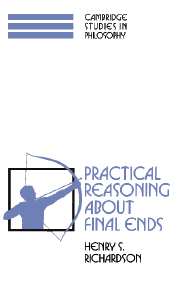VIII - Reflective sovereignty
Published online by Cambridge University Press: 05 June 2012
Summary
Can a coherence approach meet Sidgwick's challenge? Can it truly ground an alternative way of systematizing practical commitments? In particular, can it do so without covertly constructing a commensurating standard? The task of the present chapter is to show in general how it can. More extended examples of coherentist system building will be given in Chapter X.
DEWEY'S ANTITELEOLOGICAL HOLISM
Showing how a coherentist approach can systematize without commensurating will require spelling out more fully what that approach is. To begin with, this will mean learning from two views that depart in opposite ways from the sort of coherence standard I will be defending. The first, which I will discuss in detail in this section, exaggerates the implications of revisability. It is true that the coherence approach allows that any commitment is open to revision. Emphasizing this at the cost of overlooking the possibilities for system that remain, this first view sees little point in trying to build any theory, however provisionally stated. I will take Dewey's account of deliberation as exemplifying this antisystematizing position. The second, to be discussed in the following section, recaptures a place for theory at the cost of unduly restricting the scope for revisability. There, my example will be a recent model of case-based deliberation. Obviously, my own aim is to defend a truly holistic account, one that maintains strong system despite allowing an unrestricted scope for revising commitments.
- Type
- Chapter
- Information
- Practical Reasoning about Final Ends , pp. 159 - 190Publisher: Cambridge University PressPrint publication year: 1994



